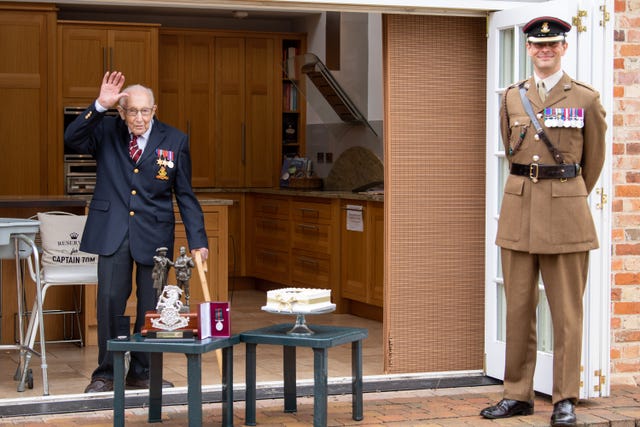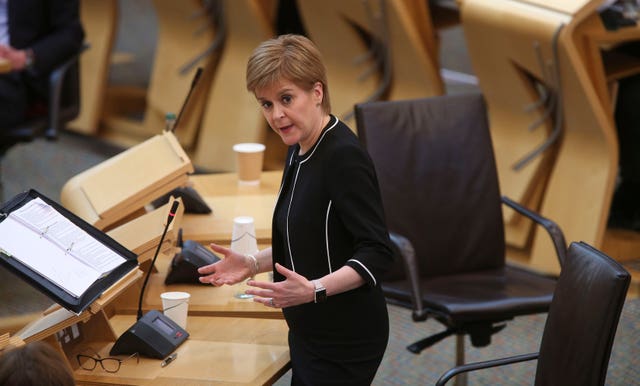Boris Johnson will front his first daily press conference since recovering from coronavirus (Covid-19) on 30 April.
The UK’s coronavirus death toll is now the third highest in the world after the US and Italy, so Downing Street is playing down any expectations of an easing of restrictions.
Number 10 said a cabinet meeting earlier in the day would look at the “response in general” but not make any decisions on lockdown measures.

That response was facing further criticism as health secretary Matt Hancock’s deadline arrived for carrying out 100,000 Covid-19 tests a day.
With just over 52,000 tests carried out on 28 April, the deadline looks set to be missed although that will not become clear until 1 May.
The target has been condemned by the NHS Providers group as a “red herring” which distracts from shortcomings in the long-term coronavirus strategy.
It released a report on 30 April which highlights how the English health and care system “started from a poor position” as Covid-19 tightened its grip on Europe, and consistently “struggled” to demonstrate a “clear, effective and well communicated strategy”, with a lack of clarity on who would be tested, when, how, and with what frequency.
Chris Hopson, chief executive of NHS Providers, which represents hospitals and NHS trusts in England, said: “Testing is one area where, despite all the work delivered by trusts and the NHS, the health and care system as a whole has struggled to develop an effective, co-ordinated approach.”
“The evidence shows we are still passing through the peak in overall cases.”@ChrisCEOHopson responds to today’s press briefing and says the figures give a clearer picture of the terrible impact of this virus.
Read our full statement: https://t.co/LK8cDBoFXl pic.twitter.com/SnyivAZMuq
— NHS Providers (@NHSProviders) April 29, 2020
The testing deadline was reached as:
– An international clinical trial, co-led by University College London and the UK’s Medical Research Council, found the Ebola drug remdesivir speeds up recovery from coronavirus by almost a third
– The University of Oxford and AstraZeneca joined forces for the large-scale manufacture and distribution of Oxford’s Covid-19 vaccine if it is proven to work during clinical trials
– Supermarket giant Sainsbury’s and banking group Lloyds warned of hits to profits from the coronavirus crisis
– Captain Tom Moore celebrated his 100th birthday at home with his family after he raised almost £30m for the NHS

The cabinet meeting and a gathering of the Scientific Advisory Group for Emergencies (Sage) come as Scotland’s first minister Nicola Sturgeon warned that easing lockdown would not be a “flick of the switch moment”.
Sage is looking at a selection of options for easing restrictions while keeping the reproduction rate of the coronavirus – the number of new cases linked to a single individual – below one to stop it spreading exponentially.
Germany saw a rise in that rate after easing its own lockdown.
With some Tory backbenchers pressing for an easing of measures for the sake of the economy, business secretary Alok Sharma is set to put forward plans for an eventual “workplace by workplace” approach.
A Business Department spokesman said: “The government has already set out five clear tests to consider before making any adjustment to its approach.
“It is only right the we work together with industry and unions to ensure workplaces are safe for both those in work now and for those going back to work as government measures develop.”

But Sturgeon said on 29 April that she was “far from convinced” measures could be eased on the next review date of May 7.
“People talk about lifting the lockdown, that is not going to be a flick of the switch moment – we’re going to have to be very careful, very slow, very gradual.
“I’m far from convinced at this stage that when we get to the next review point on the 7th of May we’ll be in a position to lift any of these measures right now, because the margins of manoeuvre that we’re operating in right now are very, very, very tight and narrow.”
Her comments came after it was announced that a total of 26,097 people have died in hospitals, care homes and the wider community in the UK after contracting coronavirus.
It is the first time data on the number of deaths in care homes and the wider community has been included in the government’s daily updates.
The total is around 17% higher than previous data showed and includes an additional 3,811 deaths recorded since the start of the outbreak.
Of these, around 70% were outside hospital settings.
The change in measurement means the UK death toll is the third highest in the world, behind the US and Italy, based on data from Johns Hopkins University.
The US had reported 58,355 deaths and Italy 27,359.
The government pointed out other countries may report figures differently and any lag is unclear, although France and Italy also include deaths in care homes.

















